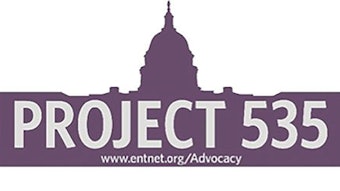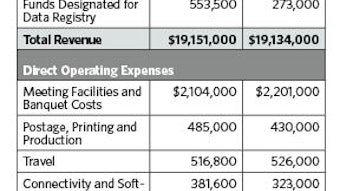Collaboration proves key to successful policy
Last October, the Blue Cross Blue Shield Association (BCBSA) reached out to the Academy requesting clinical input on their draft Injectable Bulking Agents for Vocal Cord Insufficiency medical policy.

During the review, the Health Policy Team worked with the Airway & Swallowing Committee, Voice Committee, Endocrine Committee, Physician Payment Policy (3P) Workgroup, and other physician experts (Clark Rosen, MD; Gaelyn Garrett, MD; Mark Courey MD; and Michael Johns, MD) to provide input on medical evidence and medical literature on the coverage criteria for the treatment of vocal fold insufficiency.
Academy physician leaders were concerned with the limitations of the policy and arranged a conference call with BCBSA to justify the appropriate use of injection laryngoplasty for the relevant disease processes and indications. Following the meeting, the Academy also submitted a follow-up letter to BCBSA detailing relevant medical evidence, patient scenarios, improvements to qualify of life and an overall demonstration of why reliance on randomized controls trials for surgical procedures went against the established standard of care. Due to the extensive feedback from the Academy, this past March, BCBSA determined the procedure to be the standard of care and decided against releasing a medical policy limiting coverage for the procedure.
Thanks to the hard work of Academy committee members and our physician leaders, the extensive review of the policy beforehand prevented future limitations to coverage of physicians and their patients. For more updates like this private payer advocacy win, please visit http://www.entnet.org/content/private-payer-advocacy.














